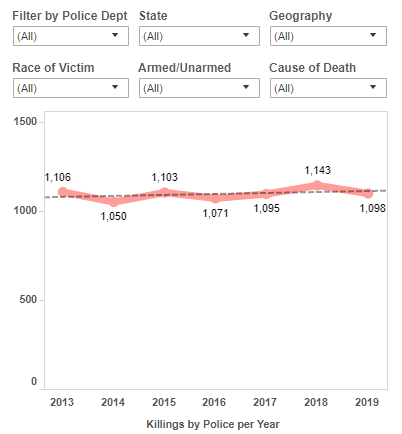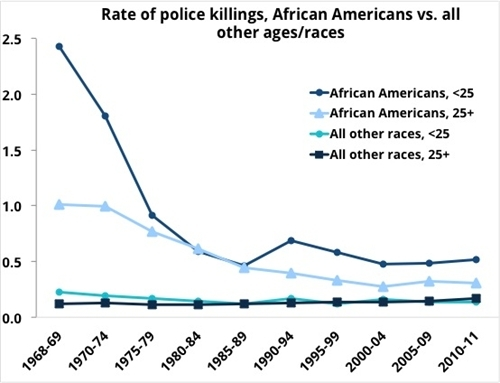1/OK, I didn& #39;t want to have to do this thread, because it& #39;s inevitably going to make a lot of people angry. But lots of people are asking, so I guess I have to:
Protest Cost-Benefit Analysis
Protest Cost-Benefit Analysis
2/A number of public health experts signed an open letter, supporting the current wave of protests against police brutality and racism, while differentiating them from the earlier reopening protests. https://slate.com/technology/2020/06/protests-coronavirus-pandemic-public-health-racism.html">https://slate.com/technolog...
3/Predictably, these public health experts have taken some flak for making this call.
So I guess it falls to economists (or former economists like me) to do the grim Trolley-Problem math of evaluating the public health experts& #39; decision in terms of lives lost/saved.
So I guess it falls to economists (or former economists like me) to do the grim Trolley-Problem math of evaluating the public health experts& #39; decision in terms of lives lost/saved.
4/Obviously, lives lost/saved are not the only measure of cost and benefit from the protests! The impact of broader cultural changes is impossible to measure, or even guess.
But it turns out that the math comes down largely in favor of the public health experts& #39; decision.
But it turns out that the math comes down largely in favor of the public health experts& #39; decision.
5/This top epidemiologist does a back-of-the-envelope calculation and guesstimates that the protests might result in 200-1100 additional coronavirus deaths per day. https://twitter.com/trvrb/status/1269533303536664576">https://twitter.com/trvrb/sta...
6/That& #39;s just a guess, obviously; there are lots of things that could be wrong with this estimate. We should probably treat it as an upper bound. https://twitter.com/mlipsitch/status/1269663266063757318">https://twitter.com/mlipsitch...
7/But just to illustrate the point, let& #39;s take a very worst-case scenario: Suppose protests cause 1000 additional coronavirus deaths per day, and continue for 2 months, meaning 60,000 additional coronavirus deaths due to protests.
8/Now, let& #39;s compare that to police violence. Police regularly and consistently kill about 1100 people in the United States each year.
https://mappingpoliceviolence.org/nationaltrends ">https://mappingpoliceviolence.org/nationalt...
https://mappingpoliceviolence.org/nationaltrends ">https://mappingpoliceviolence.org/nationalt...
9/The current protests are unprecedented in scope and size, meaning that they have a good chance of generating a long-term change in police behavior.
Suppose that this change lasts for 50 years -- about the same amount of time since the last big protest wave, in 1968.
Suppose that this change lasts for 50 years -- about the same amount of time since the last big protest wave, in 1968.
10/Suppose that the protests initiate a wave of reforms that reduce police killings by a modest amount -- say, just 20%.
That& #39;s 220 lives saved per year, or 11,000 total lives saved.
That& #39;s 220 lives saved per year, or 11,000 total lives saved.
11/Now, 11,000 is less than 60,000 (our worst-case COVID scenario, from above).
BUT, now remember that police killing victims are much younger than COVID victims on average!
The median police killing victim is 35. https://www.theatlantic.com/health/archive/2018/05/the-57375-years-of-life-lost-to-police-violence/559835/">https://www.theatlantic.com/health/ar...
BUT, now remember that police killing victims are much younger than COVID victims on average!
The median police killing victim is 35. https://www.theatlantic.com/health/archive/2018/05/the-57375-years-of-life-lost-to-police-violence/559835/">https://www.theatlantic.com/health/ar...
12/Life expectancy at age 35 is about 43 years for men, 47 years for women. So let& #39;s say 44 years, since most shooting victims are men.
13/In contrast, the average life expectancy for a COVID-19 victim is 10 years. https://www.wsj.com/articles/coronavirus-kills-people-an-average-of-a-decade-before-their-time-11588424401">https://www.wsj.com/articles/...
14/And if we& #39;re calculating Quality Adjusted Life Years (QALYs), there has to be an additional fudge factor to deal with the fact that most people who die of COVID-19 have co-morbidities. https://www.the-scientist.com/news-opinion/nearly-all-nyc-area-covid-19-hospitalizations-had-comorbidities-67476">https://www.the-scientist.com/news-opin...
15/So let& #39;s set that factor at 0.75, meaning that a COVID-19 victim has a utility of a year of life equal to 0.75 that of a police killing victim.
(Yes, calculations like this are why everyone hates economists!)
(Yes, calculations like this are why everyone hates economists!)
16/So in terms of QALYs, a very moderate (20%) reduction in police killings over 50 years gets us the equivalent of 1100*0.2*50*4.4*1.33 = 64,517.2 COVID-19 death equivalents.
This is more than 60,000.
This is more than 60,000.
17/Now remember, this analysis assumed:
1. Lives saved from police are the ONLY benefit of protests
2. A maximum estimate for protest-caused COVID deaths
3. A very modest effect of protests on police violence
These are VERY conservative assumptions!!
1. Lives saved from police are the ONLY benefit of protests
2. A maximum estimate for protest-caused COVID deaths
3. A very modest effect of protests on police violence
These are VERY conservative assumptions!!
18/Even with all of these very conservative assumptions, the protests -- and the public health experts -- still come out ahead in this back-of-the-envelope calculation!
19/So while there& #39;s obviously an enormous amount of uncertainty here, this simple calculation shows that public health experts& #39; decision to support protests, even in the face of coronavirus, can& #39;t be dismissed as a bad call.
Police violence IS a huge public health hazard.
Police violence IS a huge public health hazard.
20/Now, remember that this sort of grim Trolley-Problem style calculation is highly limited. It isn& #39;t a true cost-benefit analysis, just a measurement of the limited set of things that can actually be measured. (Again: why everyone hates economists!)
21/The point here is not to say whether protests are really worth it or not -- in a moral sense OR an economic sense.
But people saying that the danger of COVID-19 obviously outweighs the benefits of protesting need to check their assumptions -- and their math.
(end)
But people saying that the danger of COVID-19 obviously outweighs the benefits of protesting need to check their assumptions -- and their math.
(end)
Note: A number of people are responding "But how many of those police killings are justified?"
Economist answer: Who cares. Cost-benefit analysis isn& #39;t about passing judgment on who deserves death. A life saved is a life saved.
Economist answer: Who cares. Cost-benefit analysis isn& #39;t about passing judgment on who deserves death. A life saved is a life saved.

 Read on Twitter
Read on Twitter




